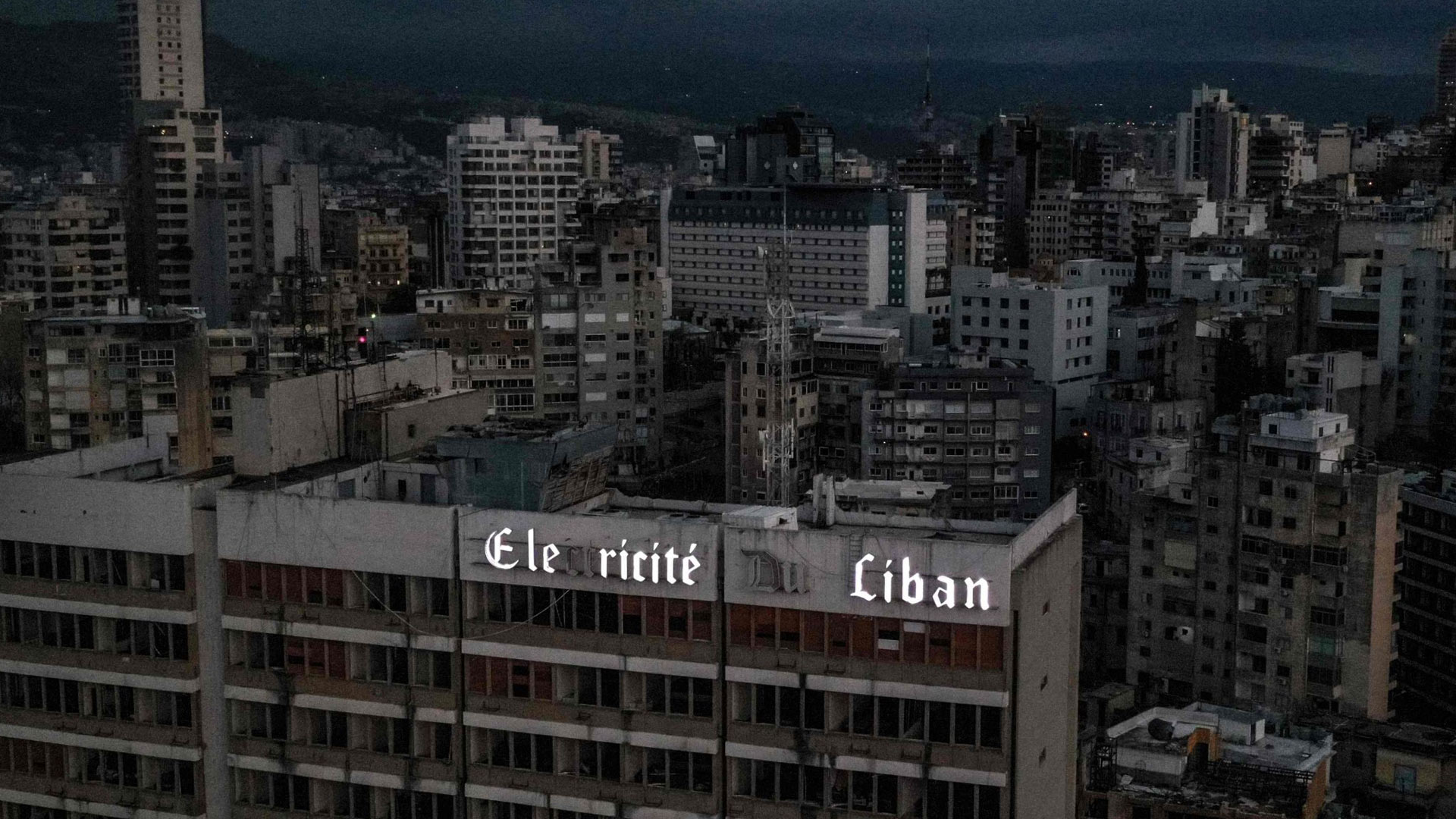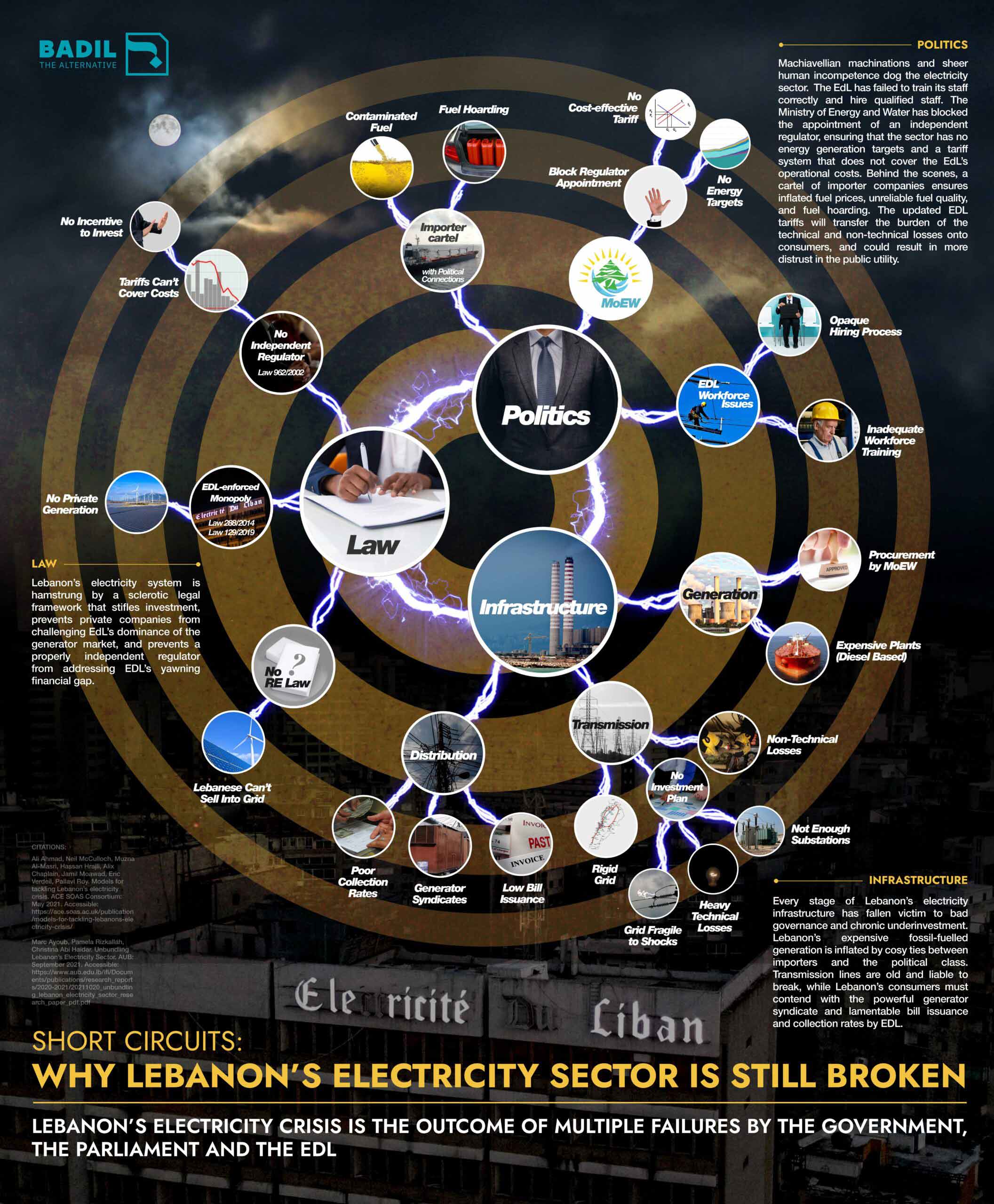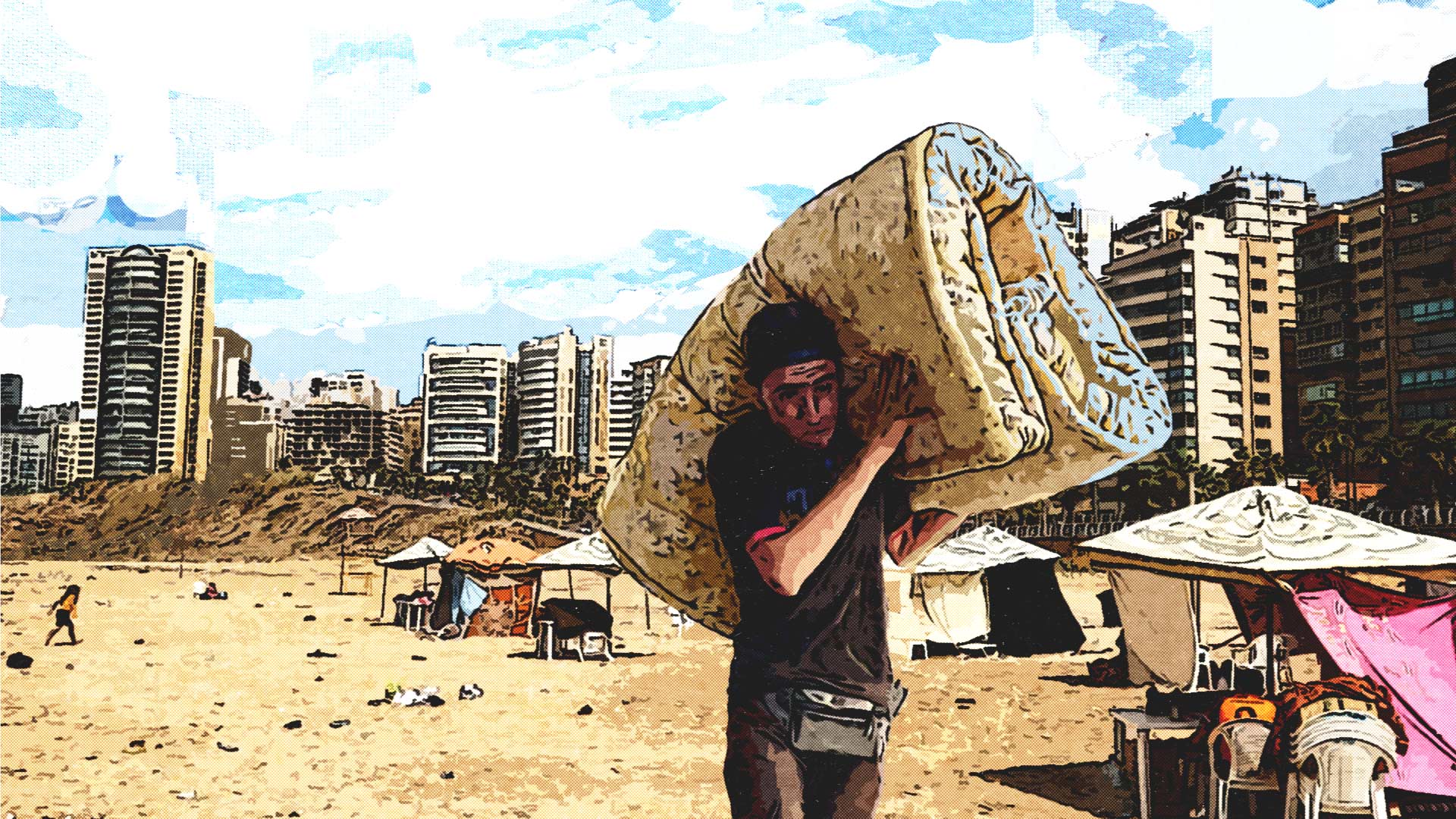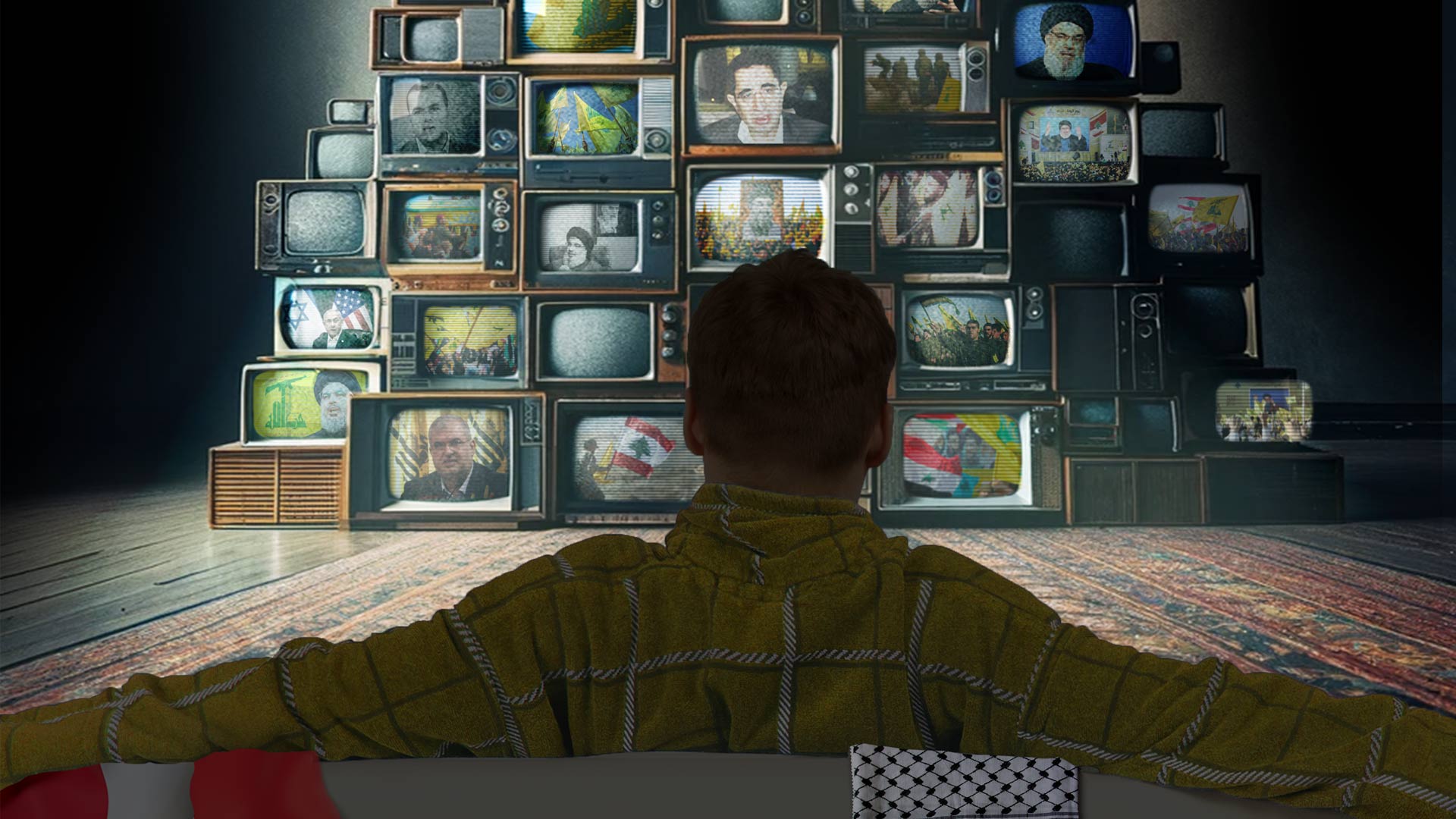Why doesn’t my electricity work?
At the start of this month, Lebanon’s residents woke up to the dubious news that Electricité du Liban (EDL) was increasing its tariffs – and for the first time since the 1990s. Controversial though the announcement was, the price hike promises to partially narrow EDL’s yawning deficit and unlock critical World Bank financing for a gas and electricity deal between Lebanon, Syria, Jordan and Egypt.
With that said, price hikes are no silver bullet for Lebanon’s myriad electricity woes. Where do you even begin?
Our infographic below simplifies the mess by framing the crisis around three crucial problems–infrastructure, politics, and the law–and the consequences that each of these generates. Our hope is that by understanding Lebanon’s messy electricity problems, we can collectively begin to solve them.




